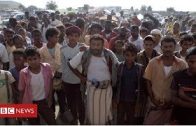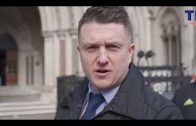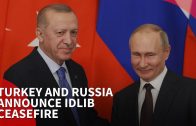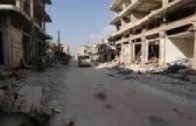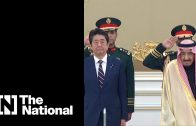Yemen’s humanitarian emergency near breaking point
Thanks for watching my video.
If you like my videos, please subscribe to the channel to receive the latest videos
A crisis within the world’s greatest humanitarian emergency could be reaching breaking point over the control of lifesaving aid millions of Yemenis need to survive. Major donors and some of the world’s biggest aid agencies will meet in Brussels on Thursday in an effort to forge a collective response to what is being widely described as unprecedented and unacceptable obstruction by Houthi authorities who hold sway over large swathes of northern Yemen. The lives of millions of Yemenis depend on it. A recent Yemen briefing to the UN Security Council underlined that access constraints were affecting 6.7 million Yemenis who needed assistance – a figure which it noted has “never been so high.” “Humanitarian agencies must operate in an environment where they can uphold humanitarian principles,” says Lise Grande, the UN’s Resident Humanitarian Coordinator in Yemen. “If we reach a point where the operating environment doesn’t allow us to do that, we do everything we can to change it.” Months of meetings, a succession of envoys despatched to the capital Sana’a, and a series of statements to the UN Security Council have failed to resolve a catalogue of complaints ranging from delays in permits to harassment and detention of staff. One aid official expressed concern over an “extremely hostile environment”. Concern spiked when a levy on every aid agency was proposed, amounting to 2% of operational budgets, by the body established to exert greater control over aid known as the Supreme Council for the Management and Coordination of Humanitarian Affairs (SCMCHA). “This is huge,” explains one aid official who, like most agencies operating in Yemen, did not wish to speak on the record given the acute sensitivity of these issues. “It could be seen as financing the war.” “We don’t want any disagreements with aid agencies,” insists Man’e Al Assal who heads SCMCHA’s Department of International Cooperation. “We informed them that if we work together towards a common goal to help people in need then we will not disagree, but not if they bring in political considerations,” he tells me when we meet in Sana’a where Houthi rebels, officially known as Ansar Allah, have been in charge since 2014. His words underscore an atmosphere often clouded by suspicion and criticism of major western aid agencies and their spending priorities. As for the tax, he explains “there should be nothing wrong with providing funds which enable us to coordinate aid when we’re suffering from a blockade,” a reference to restrictions imposed on air and sea ports by the Saudi-led coalition battling the Houthis aligned to Iran. He then hastens to add the tax is still only a proposal. We’re surrounded by towering stacks of boxes in a vast warehouse at Sana’a International Airport, a spot chosen by Al-Assal to make his point as forcefully as possible. “When this aid comes, like
